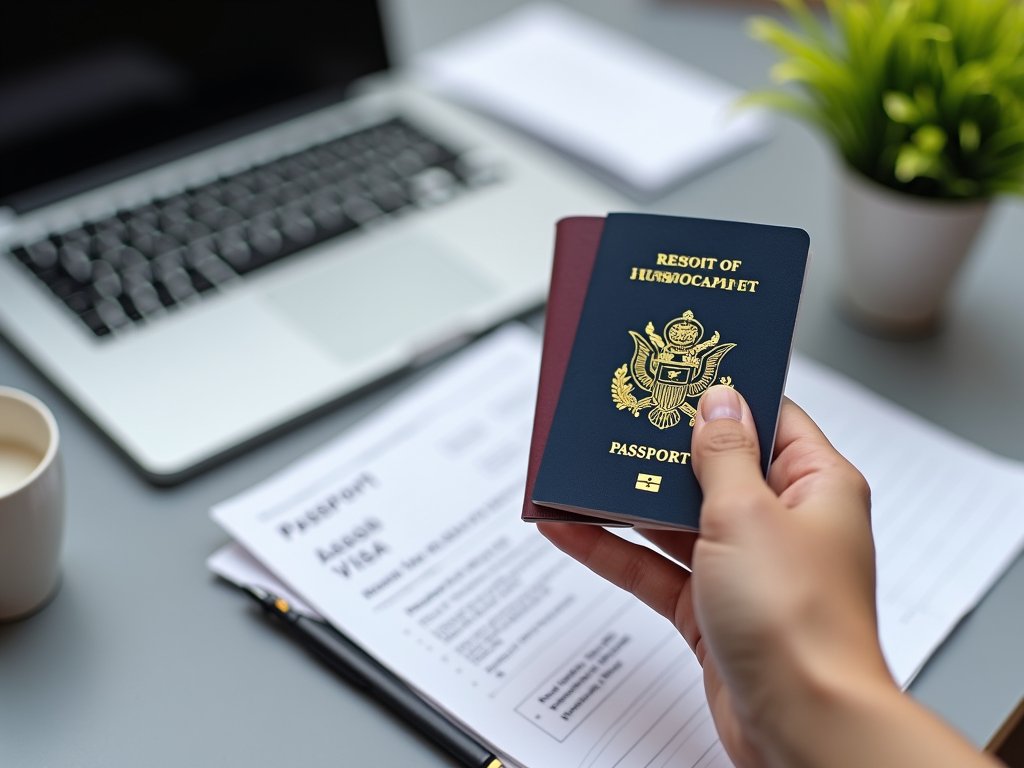
Required Documentation for a Dubai Residence Visa Application
Applying for a Dubai Resident Visa involves several critical steps, with the right documentation being crucial to ensure a smooth application process. This article provides a comprehensive overview of the essential documents needed for a successful application, catering to expatriates and foreign nationals seeking to make Dubai their home. With a rapidly growing population and diverse expat community, having the right paperwork can greatly simplify your relocation journey.
Understanding the Dubai Residence Visa

The Dubai Residence Visa is a permit that allows individuals to reside in Dubai for an extended period. It is essential for expatriates wishing to work, study, or live in the UAE. This visa often requires sponsorship from either a UAE national or a resident expatriate. Typically, a residence visa is valid for up to three years and is renewable. The application process is overseen by the General Directorate of Residency and Foreigners Affairs (GDRFA). Achieving compliance with the documentation requirements is paramount, as incomplete submissions may lead to delays or rejections. Let’s delve into the specific documents required for the application process.
When preparing to apply for a Dubai Residence Visa, certain key documents are mandatory. Gathering these documents in advance can greatly streamline the process and alleviate stress. Below is a list of the essential paperwork you will need:
- Passport: A valid passport with a minimum of six months validity.
- Passport-sized photographs: Recent passport-sized photos adhering to the specified requirements (usually 4 photos).
- Entry Permit: A valid entry permit or visa that allows you to enter the UAE.
- Medical certificate: A health check-up report from an approved medical center in the UAE.
- Housing contract: A registered lease agreement or proof of ownership of a property in Dubai.
- Employer’s letter or sponsor documentation: A letter from your employer or the residency sponsor, if applicable.
Additional Documentation Based on Employment Status

Your employment status significantly impacts the additional documents required for your residence visa application. If you are employed, your employer will typically handle much of the visa process, but you will need to provide certain documents. Freelancers, retirees, or self-sponsors will require different sets of documents. Here’s a breakdown:
- If employed:
- Employment contract signed by your employer.
- Your company’s trade license copy.
- Salary certificate issued by your employer.
- If self-sponsored:
- Proof of income (bank statements, tax returns).
- Business setup documentation if you are a business owner.
- If retired:
- Pension statement or proof of retirement income.
- Proof of financial stability, such as bank statements.
Specific Requirements for Family Sponsorship
If you are applying for a residence visa for family members, additional requirements come into play. Family sponsorship often entails a more detailed application process, with specific documentation related to relationship proof, financial stability, and living arrangements. Common documents required when sponsoring family members include:
- Marriage certificate: Attested if sponsoring a spouse.
- Birth certificates: For children, also need to be attested.
- Proof of relationship: Documentation indicating the family connection.
- Financial proof: Bank statements or salary certificates that demonstrate your capacity to support your family in Dubai.
- Tenancy contract: Proof of housing sufficient for your family size.
Conclusion
Successfully obtaining a Dubai Residence Visa is a task that requires careful preparation and thorough attention to documentation. By ensuring that you have the required documents ready ahead of your application, you can navigate the process with ease and confidence. Be mindful of additional requirements depending on your employment status and whether you are sponsoring family members. Meeting all requirements will enhance your chances of a successful application and help you embark on a new chapter in one of the most dynamic cities in the world.
Frequently Asked Questions
1. How long does it take to process a Dubai Residence Visa?
Processing time for a Dubai Residence Visa can vary, but typically it takes anywhere from 2 to 7 working days once all documentation is submitted.
2. Can I apply for a residence visa without a job offer?
Yes, you can apply for a residence visa if you meet other criteria, such as self-sponsorship, financial stability, or retirement.
3. Is medical insurance mandatory for obtaining a residence visa?
Yes, health insurance is generally required for residence visa applications in Dubai to ensure that all residents have access to necessary medical care.
4. What should I do if my application is rejected?
If your application is rejected, review the rejection reasons carefully, gather any missing documents, and you can reapply or appeal the decision as per GDRFA guidelines.
5. Can I convert a tourist visa to a residence visa?
Yes, it is possible to convert a tourist visa to a residence visa, but this usually requires leaving the UAE and reapplying under the residence visa category.

